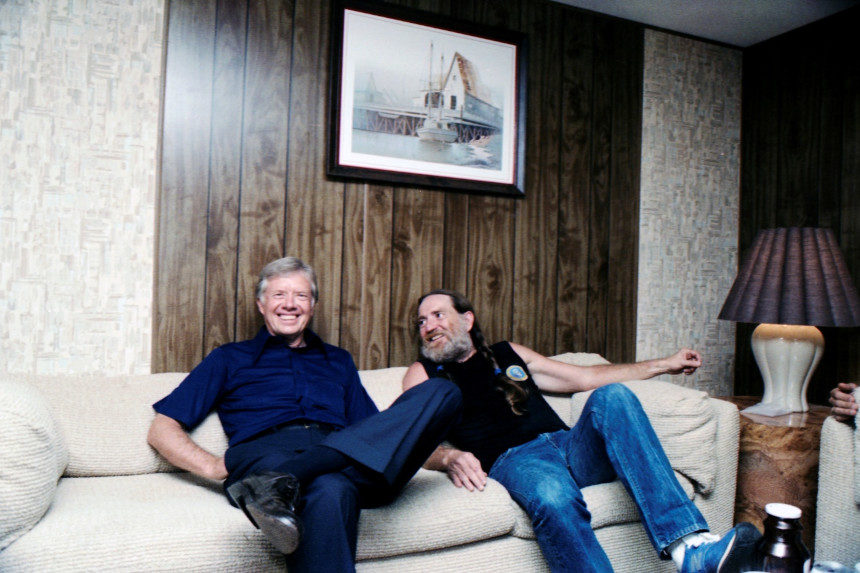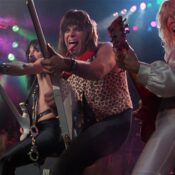Jimmy Carter: Rock and Roll President
⭐ ⭐ ⭐ ⭐
Director: Mary Wharton
Stars: Jimmy Carter, Garth Brooks, Jimmy Buffett, Willie Nelson, Bob Dylan, Larry Gatlin
In theaters and virtual theater video on demand
Bill Clinton may have been the first U.S. President born after World War II, but as this tuneful, nostalgic documentary reminds us, it was Jimmy Carter who first harnessed the energy of rock and roll to catapult himself to the highest office in the land.
James Earl Carter, born in 1924, went to war to the music of Glenn Miller and Tommy Dorsey — but he was a Georgia boy whose childhood soundtrack was dominated by the gospel tunes he sang in church and the barn dance music that crackled through the air from the Grand Ole Opry.
By the time he ran for President in 1976, Carter’s musical tastes had already morphed into a love of country-tinged rock and roll, and he brought that sensibility to his campaign.
In fact, if not for his rockabilly roots, the film suggests that Carter might not have become president at all. Director Mary Wharton — a long-time producer/director for PBS’s American Masters series — explores how, in the early days of his campaign, the candidate would come up with desperately needed cash simply by calling on the likes of The Marshall Tucker Band or the Allman Brothers to drop what they were doing to mount a fundraising concert.
“We’d have a concert on Saturday,” a former campaign worker recalls, “and use that money to buy advertising on Wednesday.”
As Carter himself tells Wharton, “It was the Allman Brothers who put me in the White House.”
The film makes clear that Carter was no simple opportunist; his love of music infused every aspect of his life, from the spiritual to the political. Bob Dylan marvels that on their first meeting in the White House, Carter recited many of the songwriter’s lyrics, weaving them into a personal and religious testimony.
“I realized my songs had reached into the establishment world,” Dylan tells the camera. “It made me a little uneasy.”
After his arrival in the White House, Carter filled those historic halls with music of all sorts: giants of classical, rock, gospel, and jazz all took their turns on the stage. One of the film’s most disarming passages involves trumpeter Dizzy Gillespie coaxing the prez, who famously got his start as a peanut farmer, into sort-of singing an awkward rendition of “Hot Peanuts.” Carter hosted the likes of Herbie Hancock, Diana Ross, Dolly Parton, Cher (who drank from her finger bowl) and Willie Nelson (who came to D.C. straight from incarceration after a drug bust in Jamaica).
If music enlivened Carter’s White House years, it also saw him through his darkest hours as president: At the height of the Iran hostage crisis he closed himself into his office and listened to Willie Nelson sing gospel songs.
In the end, the Carter/music connection was not enough to save his presidency. Still, there’s the sense here that it is music that continues to feed his soul — and has helped him become our greatest ex-president.
“I think music is the best proof,” Carter concludes, “that people have (at least) one thing in common, no matter where they live, no matter what language they speak.”
Featured image: Jimmy Carter with Willie Nelson, 1980 (Credit: Courtesy The Jimmy Carter Presidential Library)
Become a Saturday Evening Post member and enjoy unlimited access. Subscribe now




Comments
Sounds like a winner I’d like to see, and have nothing further to add.